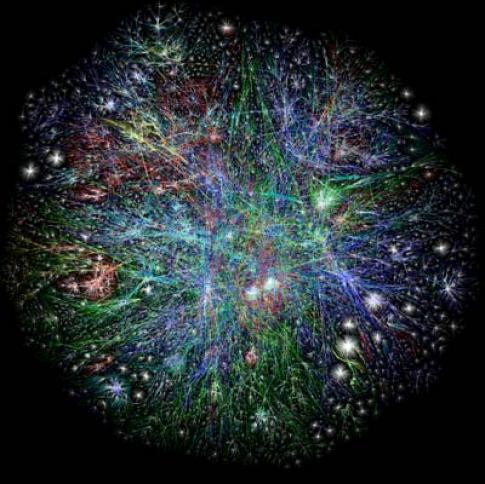National identity? Do the math(s)

The beauty of numbers is that they transcend culture and the narrow confines of grammar.
By Gillian Tett
What difference does a letter “s” make? When it comes to number crunching and national pride, the answer for some American and British people is “a lot”.
A few days ago I wrote a column in the Financial Times about short-selling bans in which I observed that it was tough for the Federal Reserve – or anyone else – to prove whether bans actually worked on the basis of any “math”.
To be honest, that is not a spelling of the word that I would normally use; the British style is “maths”, while Americans typically say “math”. But I had been chatting with some American academics just before I wrote the piece and was focused on the equity market issues. Thus the word “math” slipped in, and I failed to notice it since that missing “s” seemed such a trivial issue.
How wrong I was. When my column was published, my spelling elicited almost as many comments as my views on short-selling. “Why is a British journalist for a British paper saying ‘math’ instead of ‘maths’? It’s really, really annoying,” thundered one reader. Or as another said: “That reaction [of annoyance] to ‘math’ is pretty typical. Many feel strongly that American English and English English should not be swapped indiscriminately.”
“It appears as such an affectation for a UK-educated person (and certainly a mathematician) to use that it is seen as crossing a red line and going over to the other side,” echoed William Thomson, an American who now lives in the UK. “It is an even greater red line than becoming a US citizen.”
Why so much emotion? At first glance, it seems somewhat odd. If you look at the linguistic history of mathematics, that “s” can be justified or dismissed with equal logic. Linguists believe that the word takes its root from the Greek manthanein, which can be roughly translated as “to learn”. Initially, this meant general “learning” – hence the word “polymath”. But in the 14th century, the phrase “mathematics” entered the English language, from French, and became associated with numbers.
However – and crucially – this concept was initially expressed as a plural, because medieval number crunching came in many forms, including astrology, trigonometry, calculus and physics. Thus when the word “math” first appeared in print in the 19th century it had a period after the word – ie math. – to reflect that plural root. But then something curious happened: by the 20th century the word had mutated into a singular noun, notwithstanding that final “s” (in the same way, say, as “physics”). And that sparked the transatlantic linguistic divide: in America and Canada, mathematics came to be abbreviated as “math” because it was easier to pronounce and acted as a singular object in terms of grammar (nobody says “math are my favourite subject”, instead it is “math is my best topic”). In Britain, Australia and the rest of the colonial empire, however, that “s” remained.
Given this, I personally regard the words as interchangeable and don’t care which is used (although since I have a lisp I find it easier to drop the “s” in speech). But I am in a minority. Judging from the blogosphere, there is extreme passion felt by both Britons and Americans about the need to preserve “their” version of the word against imports. One reader of my column blames this on a deep sense of “intellectual insecurity” about quantitative issues today, particularly among men. “Men know that they ought to understand maths … but most men at some point in their education reach a stage where they cannot understand it anymore. Hence the mention of math or maths induces a sense of anxiety and remembered humiliation that provokes some men to prove that they can at least spell.”
But I suspect the key issue is national identity. These days, two-thirds of the world’s native English speakers reside in the US, where they use American spellings and words. Data suggest that the remaining one-third are becoming increasingly Americanised too; and a growing proportion of English textbooks in the emerging markets countries are being produced in an American style. It is perhaps no surprise that some British nationals are defensive. Just as the French want to protect their language against incursions, for reasons of national pride, so Britons see the use of British English as a way of guarding their historical identity. However, Americans are increasingly anxious about their role on the world stage too; this may explain the need to “protect” those Americanisms.
The irony is that all of this emotion should have been focused on a concept that does not involve language. The beauty of numbers, after all, is that they transcend culture and the narrow confines of grammar. But, there again, humans are rarely entirely logical when identity is at stake. So my suggestion is that we all just declare a truce – and learn to say “arithmetic” instead.
Copyright The Financial Times Limited 2012.




 del.icio.us
del.icio.us Digg
Digg

Post your comment